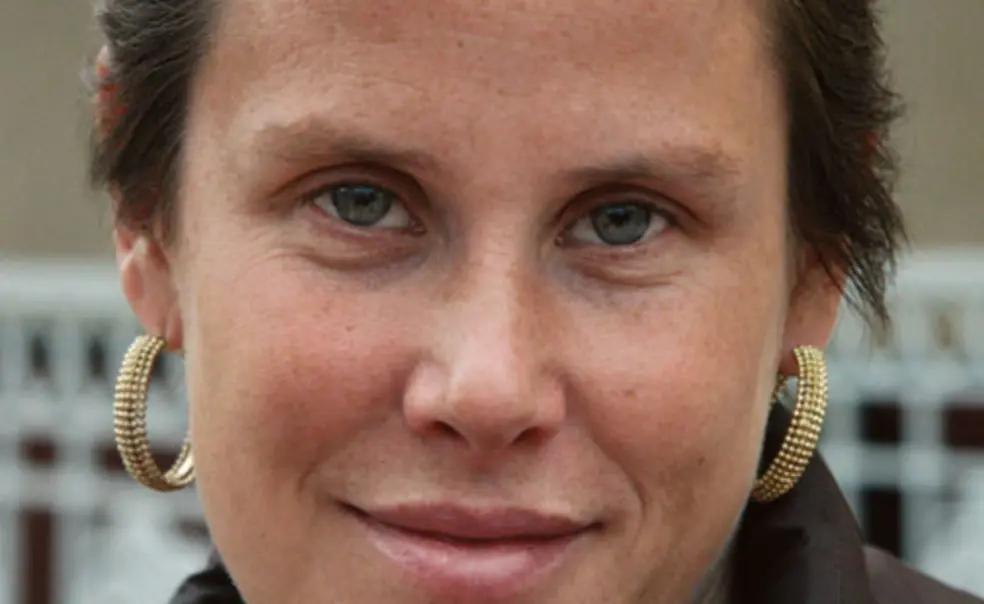Alumni Profile: Annabel Soutar '94, documentary playwright
Résumé: Co-founder and artistic director of Porte Parole, a documentary theater company in Montreal, whose first play (written by Soutar) debuted in 2000; taught film theory, acting, and directing at Ngee Ann Polytechnic in Singapore. Majored in English with a certificate in theater and dance.
ART OUT OF REAL LIFE
After a Montreal bridge collapse in 2006 killed five people, a government commission concluded that the event was an accident, meaning no one was held responsible — not the company that built the bridge, nor the government agency that oversaw it. Sensing a good story, Soutar began her own investigation. She spent months researching, conducting interviews, and wading through transcripts and newspaper clippings. She wove that material into a play, Sexy béton (Sexy cement), for Porte Parole, which mounts plays based on political topics and events relevant to Montreal, Soutar’s hometown. Originally shown in three parts from June 2009 to January 2010, Sexy béton will be restaged Feb. 9-26, in celebration of Porte Parole’s 10th anniversary.
PROMOTING PUBLIC DIALOGUE
According to Soutar, Porte Parole’s “360-degree theater” seeks to present all sides of an issue and encourage public dialogue “above the usual ideological lines.” Her plays are meant to illuminate how justice, democracy, and politics work in today’s society. “Sexy béton does not have a Hollywood ending,” says Soutar. The two protagonists who try to help the victims of the collapse and expose corruption learn that “the average citizen does not have the means, the emotional endurance, nor enough faith in the system to fight for justice.”
SPREADING THE MESSAGE
Soutar is hard at work on Porte Parole’s future. She’s researching a new play about the 2008 shooting of a Honduran immigrant boy by Montreal police, which will explore tensions between Montreal natives and immigrants. And she wants to expand Porte Parole’s audience by performing in other parts of Canada and posting more content on the Web. “Public dialogue these days increasingly resembles the act of war,” she says. “Very few people are willing to stand in the no-man’s-land between ideological bunkers and try to communicate with the different battling sides. We must step into those barren middle grounds and start to set up nonpartisan spaces.”












No responses yet